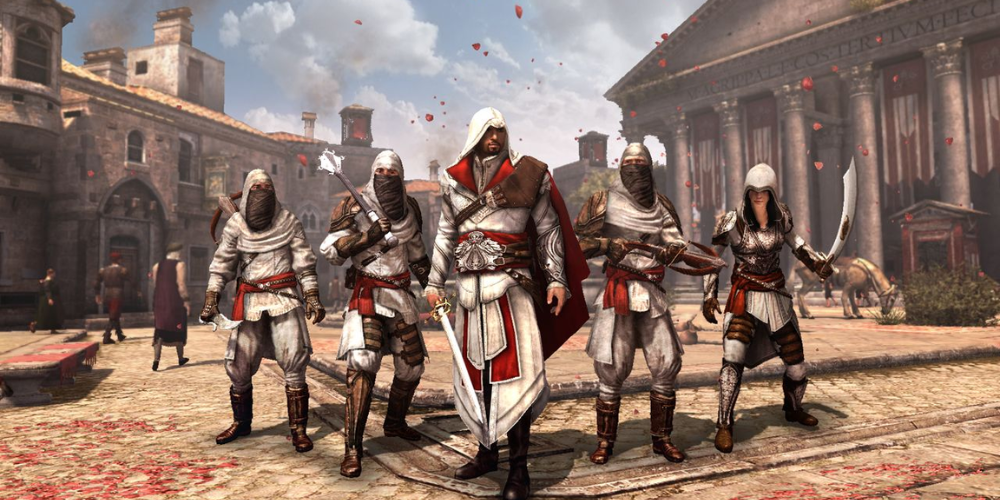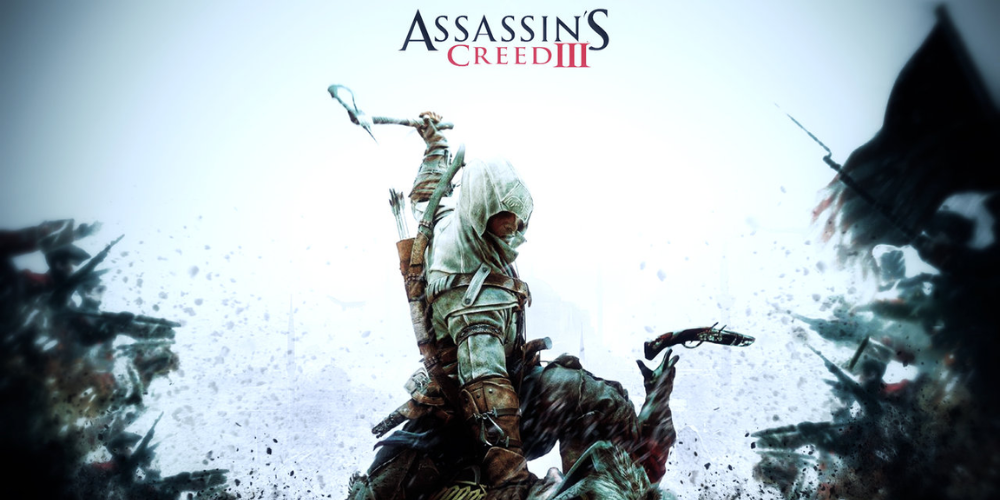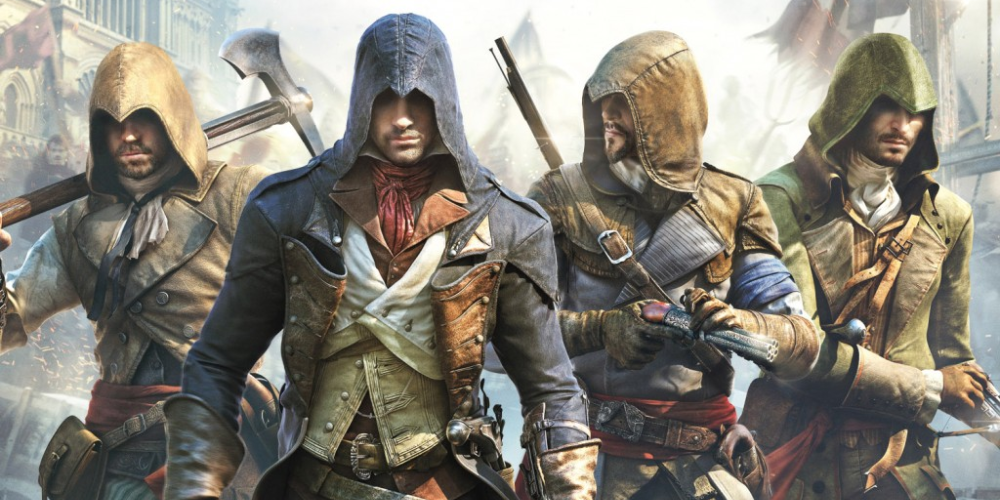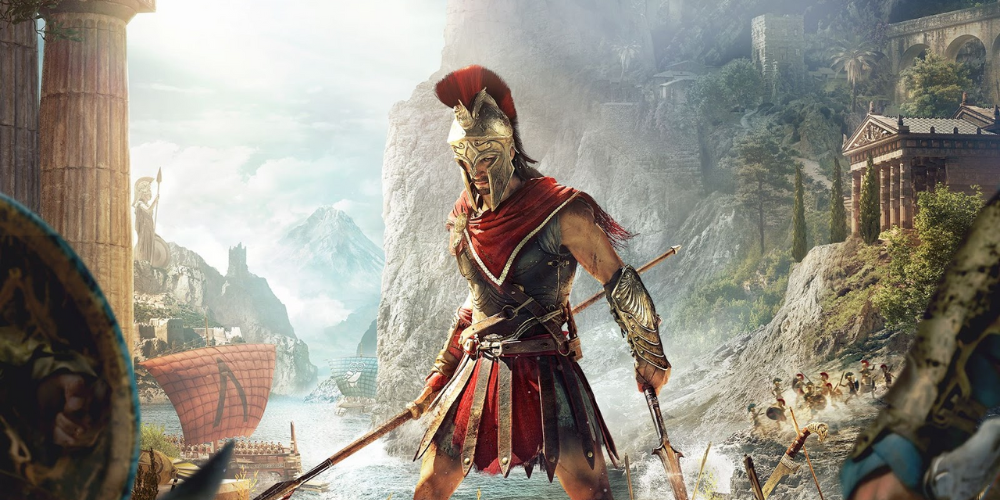"Assassin's Creed" through the Ages: A Retrospective

Since its launch in 2007, the "Assassin's Creed" series has established itself as one of the most influential and beloved franchises in the video gaming industry. Developed by Ubisoft, it has not only captured the imaginations around the globe but also embarked on a historical odyssey that spans various epochs, bringing past worlds to the present. Each installment in the series not only advances the overarching narrative but immerses players in meticulously recreated historical settings. This retrospective journey through the "Assassin's Creed" timeline explores the series from its bold beginnings to its latest adventures.
Assassin's Creed (2007)
The series debuted with "Assassin's Creed," introducing players to the Third Crusade in the Holy Land. The game introduced the conflict between Assassins and Templars, a central theme that runs through the series. Players took on the role of Altaïr Ibn-La'Ahad, an Assassin tasked with eliminating key Templar figures. Notable for its open-world exploration and the freedom it offered in accomplishing objectives, the game was praised for its innovative "social stealth" mechanic and parkour system. However, its repetitive mission structure was a point of criticism. Despite its flaws, it laid a solid foundation for the series.
Assassin's Creed II (2009)
Widely regarded as one of the high points of the series, "Assassin's Creed II" transported players to Renaissance Italy. It introduced Ezio Auditore da Firenze, a character whose charm and depth endeared him to fans. This installment expanded the gameplay mechanics, offering a richer narrative and diverse missions. The addition of the economic system, weapon upgrades, and the ability to swim added layers of depth to the gameplay. The game delved deeper into the lore of the Assassins and Templars, setting the stage for Ezio’s trilogy.
Assassin's Creed: Brotherhood (2010)
Continuing the story of Ezio Auditore, "Assassin's Creed: Brotherhood" took players to Rome, the heart of the Templar order. The game introduced the Brotherhood system, allowing players to recruit and train other Assassins. The feature added a strategic layer to the game, as players could call on their recruits to aid them in missions. The game also introduced multiplayer modes, adding a competitive aspect to the franchise. The narrative explored Ezio’s growth into a leader and his contributions to the Assassin Brotherhood.
Assassin's Creed: Revelations (2011)
"Assassin's Creed: Revelations" served as the conclusion to Ezio Auditore's story and also revisited Altaïr's narrative. Set in Constantinople, the game dazzled with its vibrant setting and detailed recreation of the city. The introduction of the hookblade added new dimensions to navigation and combat. This installment also enhanced the Brotherhood system and introduced tower defense-style sequences. The narrative intertwined Ezio's final journey with Altaïr’s closing chapters, providing a poignant conclusion to their stories.
Assassin's Creed III (2012)

The series took a bold leap with "Assassin's Creed III," set during the American Revolution. Introducing a new protagonist, Ratonhnhaké:ton, or Connor, the game explored the complexities of the period and the nuanced conflict between Assassins and Templars. The game was ambitious, introducing naval combat, hunting mechanics, and a vast frontier to explore. Despite some criticism for its protagonist and pacing, the game's ambitious scope and improvement in gameplay mechanics were lauded.
Assassin's Creed IV: Black Flag (2013)
"Assassin's Creed IV: Black Flag" is often celebrated for its thrilling pirate-themed adventure. Placing players in the boots of Edward Kenway, a pirate and grandfather to Connor, the game expanded on the naval combat introduced in its predecessor, offering a vast Caribbean playground peppered with islands to explore, fortresses to conquer, and mysteries to uncover. The game struck a balance between the series' traditional elements and the thrilling life of a pirate, earning acclaim for its engaging story, vibrant world, and memorable protagonist.
Assassin's Creed Rogue (2014)
Serving as a narrative bridge between "Black Flag" and "Assassin's Creed III," "Assassin's Creed Rogue" explored the story of Shay Patrick Cormac, a former Assassin turned Templar. The game offered a fresh perspective on the eternal conflict, delving into Shay’s disillusionment with the Assassins and his subsequent defection. While it reused many mechanics from its predecessors, this was praised for its compelling story and the unique twist of playing as a Templar.
Assassin's Creed Unity (2014)

"Assassin's Creed Unity" brought the series to the French Revolution, introducing a new protagonist, Arno Dorian. The game aimed for a more immersive and interactive Paris, with a focus on crowd dynamics and interior locations. It introduced cooperative multiplayer missions, allowing players to team up with friends. Despite its ambitions, the game was marred by technical issues at launch. However, subsequent updates rectified many of these issues, and the game is now appreciated for its detailed world and improved parkour system.
Assassin's Creed Syndicate (2015)
Set in Industrial Revolution-era London, "Assassin's Creed Syndicate" introduced two playable characters, twins Jacob and Evie Frye. The game was notable for its depiction of a bustling, smog-filled London and the addition of the grappling hook, which revolutionized navigation. The narrative focused on the twins' efforts to free London from Templar control, and the game introduced gang warfare mechanics. "Syndicate" was well-received for its charismatic protagonists, engaging story, and the introduction of more modern gadgets.
Assassin's Creed Origins (2017)
"Assassin's Creed Origins" marked a significant overhaul for the series, set in Ptolemaic Egypt. The game introduced RPG elements, a revamped combat system, and an expansive open world. Players took on the role of Bayek of Siwa, a Medjay, as he unraveled the origins of the Assassin Brotherhood. The game's detailed recreation of ancient Egypt, its compelling narrative, and the depth of its world design were lauded. "Origins" was hailed as a rejuvenation for the series, laying the groundwork for future installments.
Assassin's Creed Odyssey (2018)

Further expanding on the RPG elements introduced in "Origins," "Assassin's Creed Odyssey" took players to ancient Greece. Offering a choice between two protagonists, Alexios and Kassandra, the game delved into myth and legend. The introduction of dialogue options, branching quests, and multiple endings added depth to the narrative experience. The game's vibrant world, steeped in mythology and history, alongside its expansive naval exploration, garnered praise. "Odyssey" pushed the boundaries of what it meant to be an Assassin's Creed game.
Assassin's Creed Valhalla (2020)
"Assassin's Creed Valhalla" advanced the series' narrative into the Viking Age, following Eivor, a Viking raider. The game refined the RPG mechanics, keeping the focus on player choice and narrative complexity. Valhalla introduced settlement-building mechanics, allowing players to develop their Viking settlement in England. The vast landscapes of England and Norway, combined with the raiding and settlement mechanics, provided a fresh take on the series formula. The game's narrative intricacy and the depth of its historical setting continued to exemplify Ubisoft's commitment to evolving the series.
Looking Forward
As the "Assassin's Creed" series progresses, it continues to explore new historical settings, expand its gameplay mechanics, and deepen its narratives. What began as a novel idea has blossomed into a sprawling franchise, each installment contributing to an elaborate tapestry of historical fiction. The series has captivated gamers with its rich historical settings, engaging gameplay, and thought-provoking narratives. Looking forward, it's clear that the journey through history is far from over, with each new installment eagerly anticipated by fans worldwide. "Assassin's Creed" has not only left an indelible mark on the gaming world but has also redefined what it means to experience history through the medium of video games.







